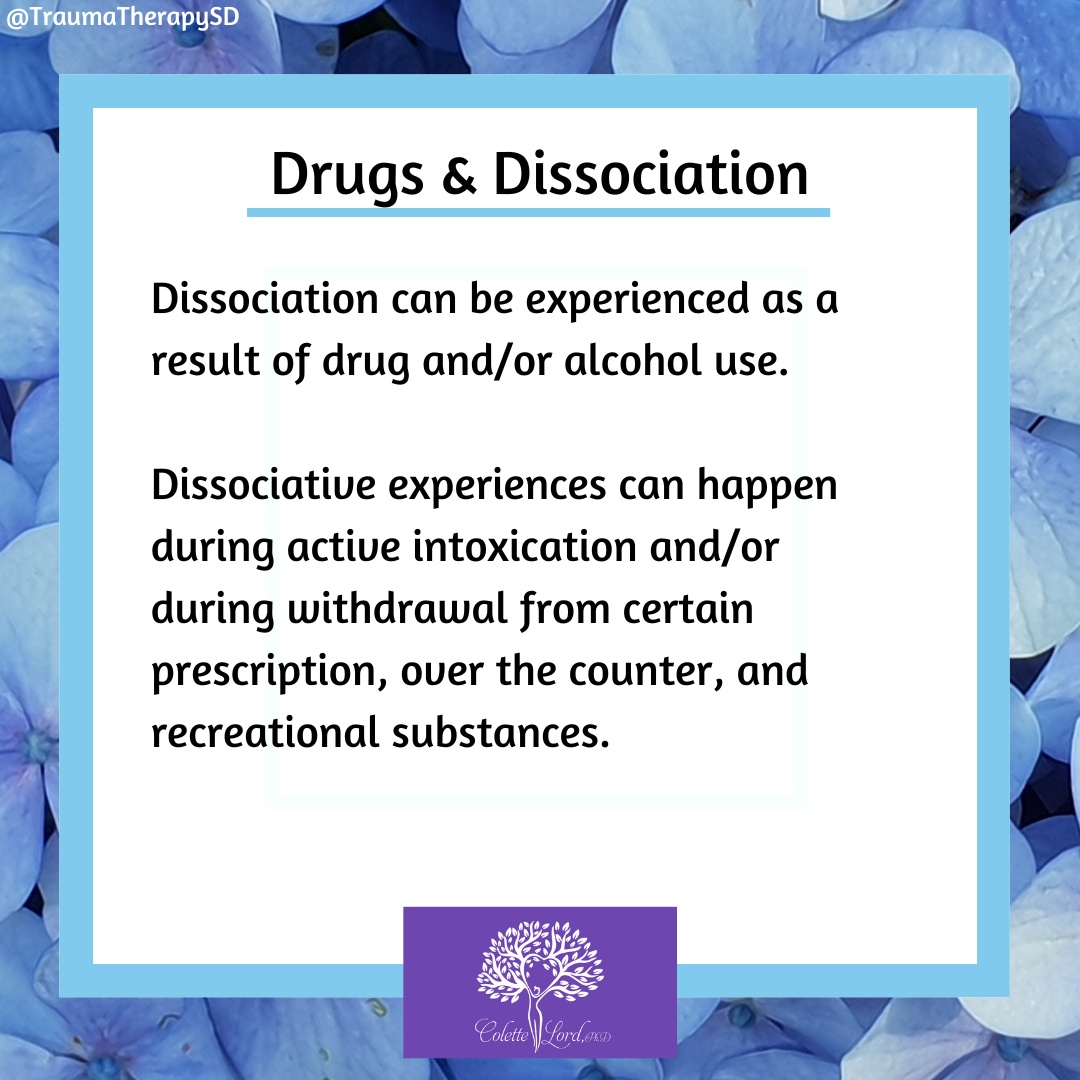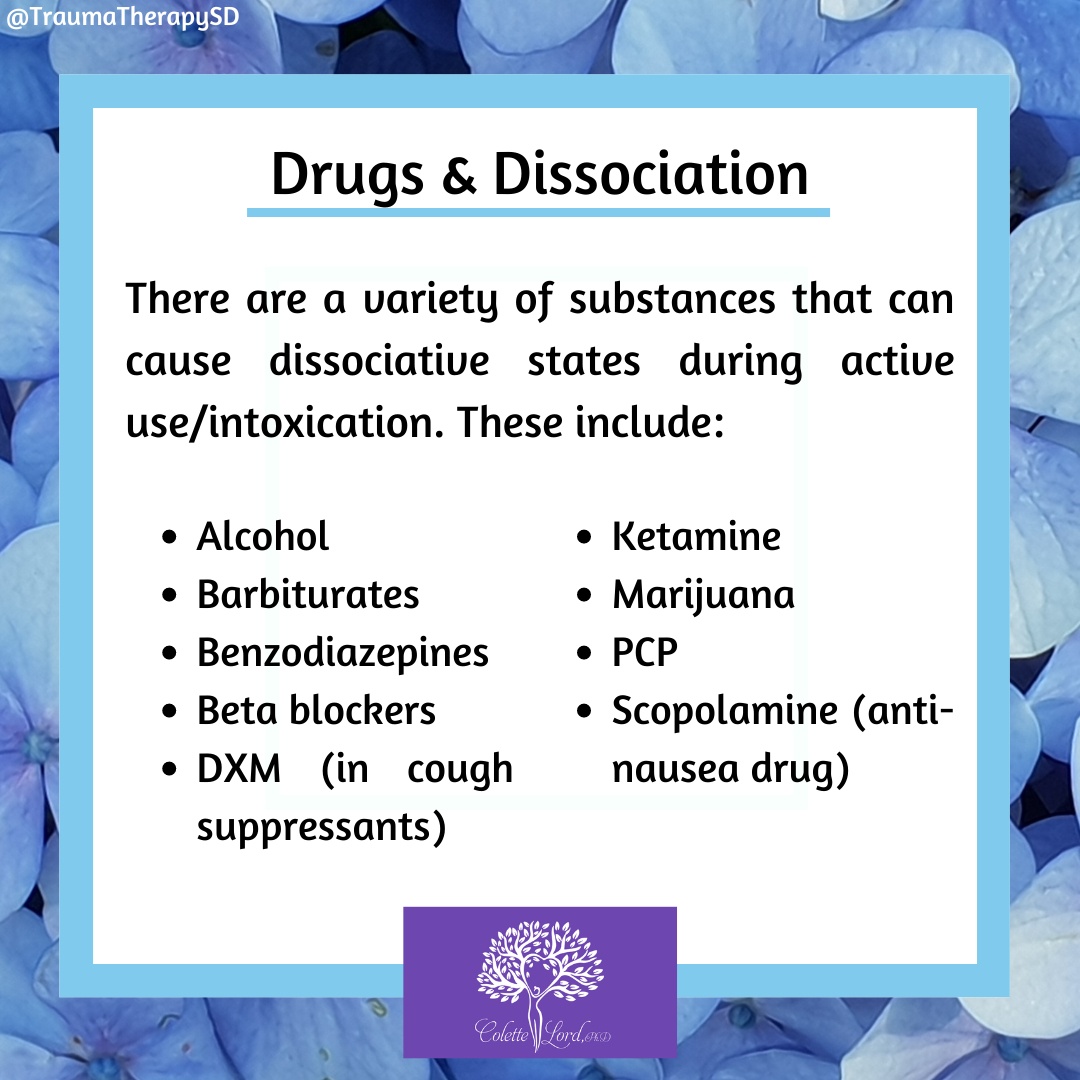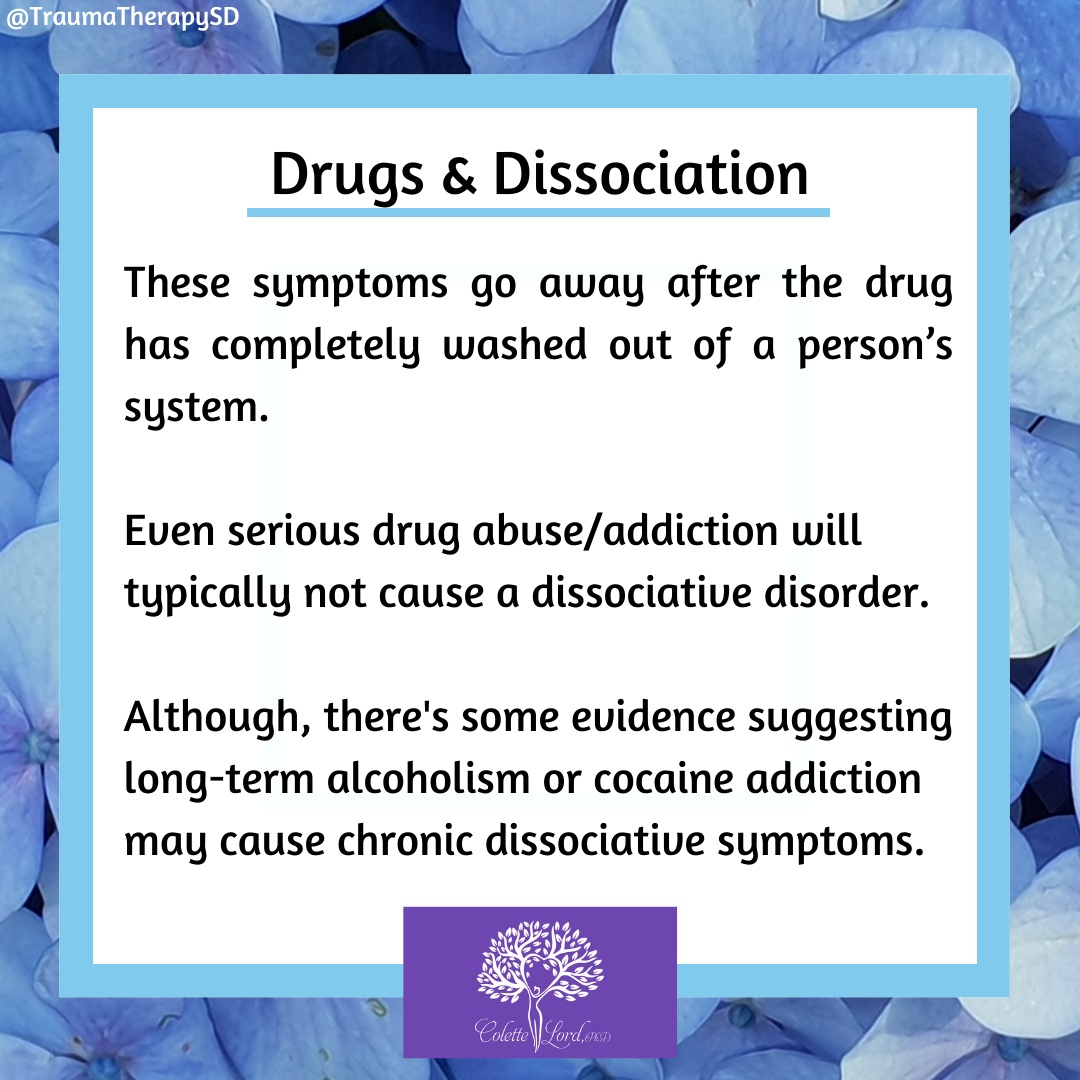Drugs and Dissociation
Dissociation can be experienced as a result of drug and/or alcohol use.
Dissociative experiences can happen during active intoxication and/or during withdrawal from certain prescription, over the counter, and recreational substances.
Dissociative There are a variety of substances that can cause dissociative states during active use/intoxication. These include:
- Alcohol
- Barbiturates (pentobarbital, Secobarbital)
- Benzodiazepines (Ativan, Xanax, Lorazepam)
- Beta blockers (Atenolol, Propranolol)
- DXM (found in cough suppressants)
- Ketamine
- Marijuana
- PCP
- Scopolamine (anti-nausea drug)
These symptoms go away after the drug has completely washed out of a person’s system.
For most people, even serious drug abuse/addiction will not cause a dissociative disorder, although, there is some evidence suggesting that long-term alcoholism or cocaine addiction may cause chronic dissociative symptoms.













